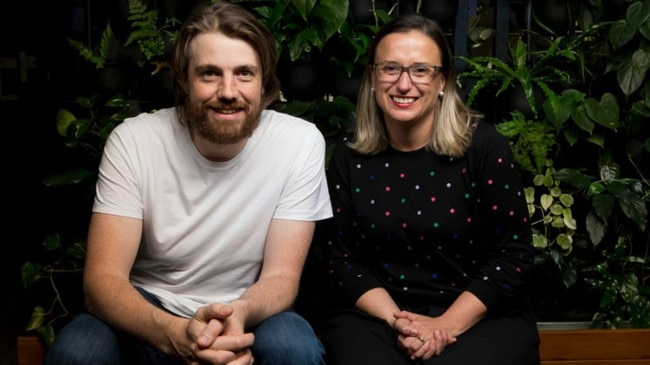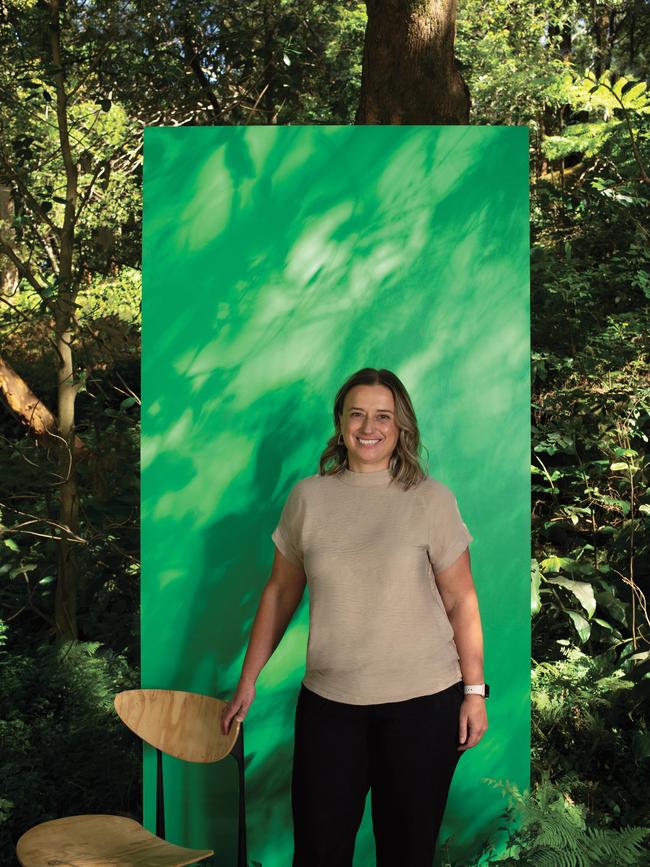Fintech start-up Brighte ‘closer to profitability’ after turning around its losses and lay-offs
This Mike Cannon-Brookes-backed start-up, dubbed the ‘Afterpay for solar’, says profitability is within reach despite a difficult 2022.

The boss of the Mike Cannon-Brookes-backed Brighte – dubbed the Afterpay for solar – says her start-up has turned a corner after financial documents showed its employee expenses, marketing spend and overall losses all ballooned in the past financial year.
Filings with corporate regulator ASIC show that Brighte, which provides interest-free finance for home solar panel and battery installation, pulled in revenues of $33.5m for the 2022 financial year ending June 30 – up 13 per cent year on year – while expenses soared by 102 per cent to $78.3m.
The filings show Brighte’s employee expenses grew by 160 per cent year on year to $34.3m and marketing spend quadrupled, up by 416 per cent to $6.43m.
The company posted a loss after tax of $42.3m, from a loss of $9m a year earlier.
Brighte chief executive Katherine McConnell said that during the FY22 period the fintech shelved some of its expansion plans, including an energy retailing unit and plans for offshore expansion, amid severe changes to economic conditions and investor sentiment.
“By the end of FY22 the market had changed fundamentally … It became a dramatically different market,” Ms McConnell said. “What changed was capital market positions, and investor sentiment changed around positive unit economics, and not focusing on projects that had long-term paybacks.
“So that’s what I changed at Brighte; the energy retail business had a long-term payback and we weren’t going to see that business deliver revenue growth for us for a couple of years.
“Similarly for the offshore business, we made a really tough decision early on to shut that business, and then in May 2022 we made the decision to remove the headcount from that business.”
Ms McConnell said that Brighte’s business today is vastly different to its state as of June last year. She provided unaudited annualised financial figures for February 2023 to The Australian showing revenue up 25 per cent year on year, and operational expenses down 44 per cent.
In what’s since become a wider tech wreck, Brighte was one of the first start-ups to cull headcount and in 2020 laid off 25 per cent of its staff in anticipation of a market slowdown. It shed 32 workers in June 2022 and a further 58 in September.
Ms McConnell compared Brighte favourably to companies such as Milkrun, which this week announced it would lay off all staff after failing to find a path to profitability.
“What we did was we acted really decisively, we acted early and read the changes in the market, that the market wasn’t rewarding long-term projects,” she said.
“That’s what the Milkrun business was focused on, something that had a high cost and wouldn’t be profitable in the short term, whereas Brighte’s lending business, all of its loans and payment plans, have positive unit economics so investments that we were making in those other areas of the business are what we shut down.
“Our headcount today is around 140 or so people, and we’re absolutely at the right level now to support our business, and we don’t foresee further redundancies.”
Ms McConnell, a former Macquarie senior manager, founded Brighte eight years ago and has raised more than $145m in funding since its launch. She originally drew down on her mortgage to offer buy now, pay later finance for solar panels and batteries when she started the company.

The start-up has since signed on more than 130,000 customers to nearly $1.5bn of finance for equipment such as rooftop solar, solar hot water, home batteries and electric vehicles.
The company installs 47 solar systems a day and has installed 2.5 million 350W solar panels nationally.
Brighte had been tipped by The Australian as one of the nation’s next “unicorns”, or billion-dollar tech start-ups.
It raised a $100m funding round in late 2020, with some $78m coming from early investors Mike and Annie Cannon-Brookes through their Grok Ventures family office.
Brighte has also raised debt totalling $500m since 2016, when it launched Australia’s first 100 per cent green asset-backed security on the local market.
Its corporate filings show that as of June 30 2022, Brighte had $26.4m in cash. The company advised it also had a further $16m of cash in liquid assets totalling $42.4m in cash and cash equivalents on hand, giving it less than 12 months of runway.
“Runway for us now is a fantastic story,” Ms McConnell said. “We haven’t raised capital since mid-December 2020. Last year we were in a position in June 2022 that we had runway into FY23. And when I reflect today on the position, we have runway into FY25, without having raised any capital.
“That’s come from reducing our cash burn by shutting down projects that had a longer-term payback and that weren’t profitable.
“Secondly we have been very conservative in our spend, and we’ve diversified our revenue to be able to expand from what we call annuity income, which is the lending business, to also generate non-annuity income, that we’re generating upfront.”
Ms McConnell said Brighte was at the forefront of a broader trend towards the decarbonisation of the economy and her company would benefit significantly from a government and societal shift towards decarbonisation.
“We are a growth business and we’ve absolutely been focused on growth opportunities, but how we’re different to other companies is we’ve made really decisive decisions. We acted fast,” she said.
“We read the warning signs early last year, and that’s put us in a really strong position today to be here for the long term.
“I think we’re different to other companies and it’s just how we navigate this next bit of time to really prove that we can extend our runway, and prove that we can generate new lines of revenue.
“And that we can reach that break-even point very soon.”



To join the conversation, please log in. Don't have an account? Register
Join the conversation, you are commenting as Logout